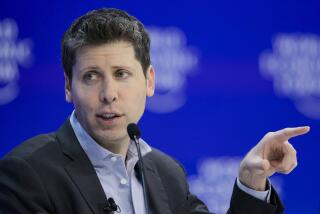Wider Stem Cell Research Sought
- Share via
A Santa Monica-based taxpayer rights group launched a formal challenge Tuesday to three patents that it contends have had a chilling effect on embryonic stem cell research.
The move came on the day the U.S. Senate approved a bill that would expand federal funding for such research, sending it to President Bush, who has promised a veto.
The Foundation for Taxpayer and Consumer Rights, which has been monitoring California’s voter-approved $3-billion stem cell research institute, initiated the challenge with the U.S. Patent and Trademark Office. The group is the first to contest three sweeping patents held by the Wisconsin Alumni Research Foundation that give the foundation control over much research.
The patents stem from University of Wisconsin researcher James Thomson’s successful isolation of human embryonic stem cells. Researchers have characterized them as so restrictive that they basically lay claim to any work with embryonic stem cell lines, even those derived independently.
The foundation has defended its patents and has noted that academic researchers are typically granted free licensing rights. However, when the California Institute for Regenerative Medicine announced that the state would receive a royalty on any intellectual property developed by nonprofit grantees, the Wisconsin foundation indicated that it viewed such a move as commercial and would seek to charge the state a licensing fee.
At a subsequent meeting of the institute’s oversight body, the chief scientist of the Juvenile Diabetes Research Foundation in New York said his group was investing research dollars abroad specifically to get around the patent restriction.
Tuesday’s challenge did not come from California’s publicly funded institute or from researchers who have developed stem cell lines they hope to commercialize.
Rather, it came from the Santa Monica watchdog group and the Public Patent Foundation, based in New York.
“There is definitely a chilling effect here. Research is going overseas,” said John Simpson, the taxpayer group’s stem cell project director.
Although officials with California’s institute have been critical of the breadth of the Wisconsin foundation’s patents in the past, they said Tuesday that they had no position on them because the institute will not conduct research. It intends to fund research with up to $300 million a year for a decade, but the bond financing is delayed by litigation.
The institute “is in the business of providing the necessary funding and infrastructure to help others move the stem cell field forward,” said Ed Penhoet, who chairs the intellectual property task force for the institute’s citizen oversight board. “Currently, we have no opinion on the enforceability or scope” of the patents, he said.
Simpson said he expects more researchers to speak up in favor of the challenge, adding that those who must currently negotiate with the Wisconsin foundation have been reluctant to lead the fight.







